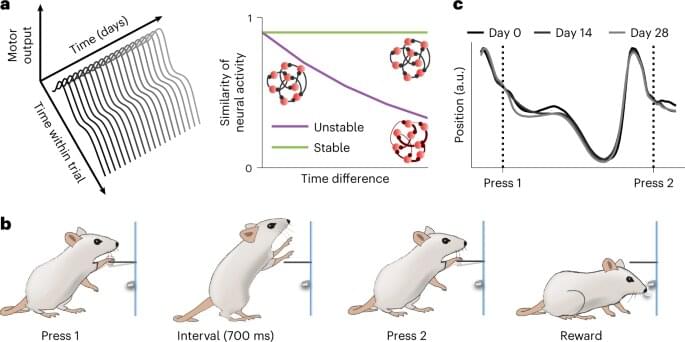While many studies have investigated the underpinnings of the mammalian motor system (i.e., the collection of neural networks that allow mammals to move in specific ways), some questions remain unanswered. One of these questions relates to the ways in which recurring or stable behaviors are maintained in the brain.
Some theories and research findings suggest that the neural activity underlying stable behaviors is itself very stable. Others, however, hinted at the possibility that the activity of individual motor neurons might change considerably over time, despite the production of similar behavioral patterns.
Researchers at Harvard University have recently tried to move toward the resolution of this long-standing debate, by observing the behavior and neural activity of rodents. Their findings, published in Nature Neuroscience, suggest that the activity of single neurons in brain regions associated with movement and physical behavioral patterns is highly stable over time.










Comments are closed.